
Burma: Democracy veteran Win Tin warns of dark times ahead
By Asian Correspondent Apr 18, 2013 12:55PM UTCIt is New Year’s Day in Burma. For the annual thingyan festival the streets have been wild with water spraying and drenched revellers. Just weeks ago an anti-Muslim killing spree was ravaging the streets of Meikhtila, and had begun to spread around the country. Many are breathing a sigh of relief that the increasingly boozy annual street festivities did not result in a resurgence of violent behaviour. But U Win Tin, 84-year-old co-founder of Aung San Suu Kyi’s National League for Democracy (NLD) party back in 1988 reflects on the recent violence and on the country’s future prospects with foreboding.

Win Tin. Pic: AP.
Before his imprisonment he was an eminent journalist, founder of a daily newspaper and an independent press council, and he spearheaded the political activism amidst which the NLD was founded. On the day of his release from prison he went straight back into active politics, and last year he set up the U Win Tin Foundation to support continuing political prisoners. He knows perhaps better than anyone the importance of democracy, human rights and the rule of law for Burma and the perils of military rule. He also knows the signs of the underhand tactics of military men who still have a grip on power in the country.
The recent religious violence has been ugly. It has been ugly not only because of the large number of people killed and houses burned, and the thousands of internally displaced people that have resulted, but also because of the vehement anti-Muslim hate speech that has been spreading all over the country through a ‘969’ campaign. This campaign has been propagated through the preaching of a handful of radical Buddhist monks, the distribution of ‘969’ posters accompanied by directives not to shop in Muslim shops or to go out with Muslim girls, and a persistent campaign on Facebook, involving the posting of inflammatory pictures, alongside text painting Muslims as evil and violent.

Smoke billows from a burning mosque following ethnic unrest between Buddhists and Muslims in Meikhtila in March. Pic: AP.
What evidence points to government involvement? U Win Tin told me that at the time of the violence, around “one hundred motorcycles rode to the scene for over 70 miles, when the lighting was cut off in the area around the route, and telephone lines had been disconnected. There was no police to stop them. And they knew where all the Muslims lived – when they got there they had a list of their addresses. So there must have been some contact with the government.”
I asked him why the government would have wanted to engineer violence of this kind at this time. He said that it is “connected with the conflict in Rakhine state”, and it “may be about proving the dominance and need for the military” at a time when democratic reforms appear to be progressing. He told me that in one Burmese journal, they quoted an old woman on the street, who was found crying. When asked her views, she said: “Than Shwe, if you want to take power again please just take it, and stop these killings!” This, he said, “is how the people are reacting”.
(READ MORE: Rohingya flee as Burma tightens restrictions on Muslims)
I asked him his views about the Letpadaung copper mine protest and Aung San Suu Kyi’s role in it. This is another key incident which has overshadowed Burma over the past year, and it is representative of the country’s approach to development, human rights, and the rule of law, as well as Suu Kyi’s political leadership. Until now, U Win Tin has been an unflinching supporter of Aung San Suu Kyi, his party’s leader, but this incident has prompted him to criticize her publicly.
The Letpadaung mine is a major, 60-year project being developed by a Chinese company in partnership with the military government. It was opposed from the start by local rural farmers, hundreds of whom stand to lose their land and their livelihoods as a result of it – land which is fertile for agriculture and would be ruined for the foreseeable future by such a mine. At a peaceful protest at the site, supported by over a hundred monks, the police threw bombs at the protestors. The bombs caused fires and horrendous burns to hundreds of people, and proved to contain white phosphorous: an illegal chemical weapon by international standards. An independent report by two NGOs revealed that the Chinese company compelled rural workers to sign agreements, without having sight of the text, giving up their right to their land completely for minimal compensation to the value of their current crops, not even including the price of their land and future source of income. A large group of rural workers refused to sign anything. They requested permission to protest peacefully multiple times – a requirement of Burma’s restrictive law on public assembly – and were refused every time. When work on the mine started, they decided to protest peacefully. The response was a violent attack by the police, a public authority. Aung San Suu Kyi was made head of an investigative commission to look into the mine. The commission recently produced a report recommending that the mine go ahead as planned, with some additional compensation for rural landowners. It concluded that nobody could be held responsible for the police attack on peaceful protestors, and it failed to condemn the use of white phosphorous bombs as an abuse of human rights.

Aung San Suu Kyi speaks to monks who suffered burn injuries in the Letpadaung copper mine protest crackdown. Pic: AP.
(READ MORE: Whitewashing the crackdown on Burmese protestors)
At the turn of the Burmese new year, as Aung San Suu Kyi continues to lead the NLD in the transition to democracy, she might do well to consider making two resolutions based on U Win Tin’s observations about Meikhtila and Letpadaung. One: do not trust a military government, even one disguised as a civilian government and making the right noises about democracy, and do not let them tar you with the brush that tars them. Two: remember that the rule of law, which you advocate for so vociferously, is based on respect for fundamental human rights, transparent actions of government, and the ability to hold government to account for human rights abuses.
More from this author…
In defence of the rule of law - Democratic Voice of Burma
Is Burma sliding back into censorship? - Free Speech Debate
About the author
Ellen Wiles is a British writer and barrister currently based in Burma where she has been advising on media law reform and rule of law, and researching literature and culture during censorship and transition. She tweets as @ellenwiles.





















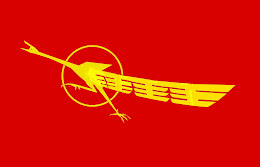





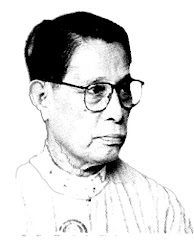


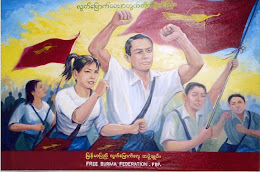





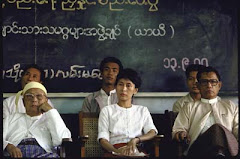

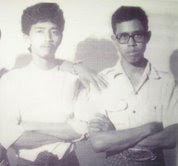

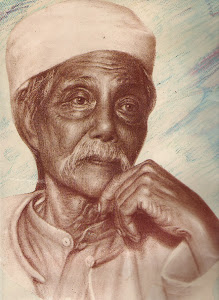
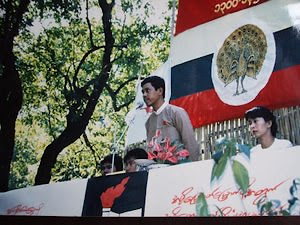
No comments :
Post a Comment